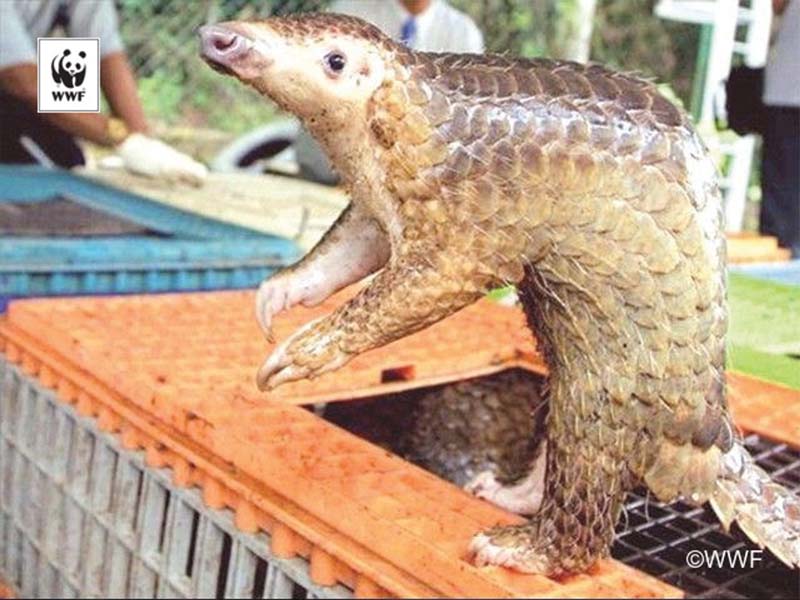
Notwithstanding, the rest of the world has come down strong on traffickers after witnessing an unprecedented surge in illegal wildlife trade, Pakistan is yet to come to grips with the multi-headed hydra.
A World Wildlife Fund-Pakistan press release said that wildlife crime destabilises ecosystems and alongside habitat destruction, poses a serious threat to endangered wildlife. The United Nations Office on Drugs and Crime (UNODC) recognises wildlife crime as the third-largest transnational crime after drugs and human trafficking.

The dearth of effectual management is amplified by poor law enforcement has resulted in prevalent and persistent unreported wildlife crime.
As a source, consumer and transit country for consignments of live animals, their parts and derivatives, Pakistan is in a strategic location with the road, air and sea transit routes that are easily accessible and not closely monitored.
A recent UN report on the State of Global Wildlife Crimes by the reported illegal trade enumerated that about 7,000 species in more than 164,000 seizures incidents from 120 countries since 1999.

Species that are traded from Pakistan consist of; various subspecies of turtles and tortoises, birds such as falcons, pangolins, snakes and others reptiles, furry mammals such as foxes, jackals, wolves, and otters, sharks, and invertebrates such as scorpions.
WWF-Pakistan is developing a robust national action plan to address these issues and challenges, in the form of capacity building of law enforcement agencies, awareness campaigns and research to develop new practical strategies.
As part of the plan, their ‘Save Our Species’ campaign hopes to draw attention to the plight of the rare wildlife of Pakistan.
Published in The Express Tribune, August 7th, 2016.
















1734778885-0/Untitled-(10)1734778885-0-270x192.webp)






COMMENTS
Comments are moderated and generally will be posted if they are on-topic and not abusive.
For more information, please see our Comments FAQ